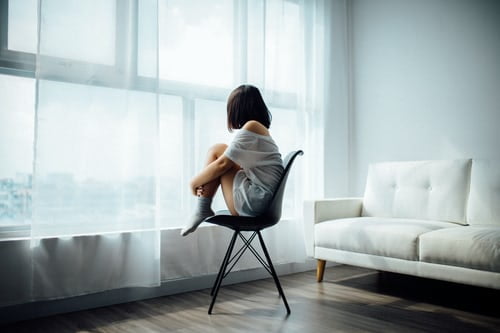How Important Is Alone Time for Mental Health?
People tend to be social beasties, and examination has shown that social connections are vital for both emotional and physical well-being. Notwithstanding, alone time also plays a crucial function in inner health. Being around other people comes with bounties, but it also creates stress. You worry about what people allow. You alter your bearing to avoid rejection and to fit in with the rest of the group.
While it may be the cost of being part of a social world, some of these challenges demonstrate why alone time can be so important. Having time for yourself gives you the chance to break free from social pressures and spigot into your own deliberations, passions, and gests.
The COVID-19 infection demonstrated both the challenges of loneliness and a lack of solitary time. Where multiplex people lumbered with passions of separateness and loneliness, others faced the challenges of suddenly spending a great deal of time in a close house with family members or roommates. Blurred work-life boundaries and a lack of time apart meant that multiplex people were suddenly lumbering with a complete lack of alone time.
Why Alone Time Is Important
Chancing time to be alone can have a number of pivotal benefits. Some of these include
Personal Exploration
Creativity
Social energy
Personal Exploration
Running comfortably in your own company can give you the time and freedom to truly explore your own heartstrings without impediment. It can be a way to try new paraphernalia, investigate questions that fascinate you, acquire knowledge, and yea rehearse new styles of genius- expression.
Giving yourself alone time means you can explore this paraphernalia without the pressures and judgments that others may find. Having time to yourself is critical for growth and peculiar development. Instead of fussing about the necessaries, interests, and opinions that others may have, alone time lets you fasten on yourself.
Creativity
Alone time is an occasion to let your mind wander and strengthen your creativity. Without the need to mind for or interact with other people, you can ignore outside influences and fasten inward.
Research actually suggests that being alone can lead to changes in the brain that help fuel the creative process. One study innovates that people who tend to intentionally withdraw in order to spend time alone also tend to be considerably creative people.
In a 2020 study published in the journal Nature Messages, investigators plant that perceived social solitariness (aka loneliness) led to increased exertion in the neural circuits related to imagination. When left with a lack of social stimulation, the brain ramps up its creative networks to help fill the void.
Social Energy
Living alone tends to be seen in a negative light. Notwithstanding, experimenters have begun that people who live alone may actually have richer social lives and added social energy than people who cohabitate with others.
In his book “ Going Solo,” sociologist Eric Klineberg notes that one in sevenU.S. grown-ups lives alone. Klineberg begins that not only were these grown-ups not lonely, beaucoup actually had richer social lives.
Reasons Being Alone Isn’t Always Easy
Alone time can be challenging for some people for a variety of reasons. One study initiate that multifold people would prefer to give themselves painful electric shocks rather than just sit alone with their own considerations. Some of these reasons people might struggle with being alone include
Lack of experience being alone: Some people just might not be used to being by themselves because they’re so habituated to being around other people. The unanticipated absence of social stimulation can leave them feeling detached or disconnected.
Distressing considerations and passions: In other cases, being alone and concentrating inward can be hairy or yea painful. People might find this self-examination distressing or find themselves engaging in pondering and anxiousness.
Social brand: Stigma about being alone can also play a function in shaping how people feel about isolation. For those who have been exposed to negative poises towards being alone or who see it as a form of cold address or social rejection, isolation can appear like a painful form of chastisement.
Marketing professor and experimenter Rebecca Ratner of the University of Maryland establishes that people hourly avoid doing paraphernalia they enjoy if they’ve to do them alone. This is particularly true if it’s an exercise that can be observed by others, like going to feed or a movie solo. Like findings suggest that smudge about being alone influences whether people suppose they enjoy like exercise.
“When people do paraphernalia alone, they enjoy themselves farther than they awaited, “Ratner explains.”People overvalue the benefits of being with someone else.”
It’s also important to note that aspects of your personality, as well as your individual preferences, can playwork in determining how much alone time you need and how salutary it may be.
Glad-handers tend to feel amped by social times, so solitariness might be more toilsome for them. Wallflowers, on the other hand, gain energy from being alone.
Notwithstanding, do not suppose that just because you’re a glad-hander that you will not enjoy spending time by yourself. In one study, social psychologist Thuy-by Thi Nguyen pioneer that wallflowers and glad-handers did not actually differ in the measure of enjoyment they gained from insulation. Contrary to popular belief, wallflowers did not enjoy insulation any added than backslappers.
“Our findings suggested that commodities who stay true to their choices and notions are more likely to take interest and see value in spending time with themselves, despite their propensities for sociality or unsteadiness around other people,” the authors explain.
No matter what your personality type, there may be times you can serve from some quality time to yourself.
Aloneness vs. Loneliness
Yea before the blight, experts alerted of a loneliness epidemic that hovered the healthiness of people of all epochs. Research suggests that people have additional loneliness now than they’ve in history. According to one 2018 report, half of Americans feel lonely sometimes, while 25 reports feeling lonely fair all the time.
There’s a cornucopia of attestation showing that loneliness can have annihilatory health consequences. It has been linked to elevated blood pressure, accelerated cognitive decline, social anxiety, and an increased menace for Alzheimer’s disorder.
Loneliness is linked to a wide range of negative health consequences including an evolved imminence for depression, anxiety, grossness, high blood pressure, and early death.
But it’s important to remember that being alone doesn’t equal loneliness. Where loneliness is marked by negative passions associated with separateness, alone time involves chancing freedom, gladness, and resurrection in solitariness.
More new, investigators have begun to explore the idea that a certain volume of quality alone time can be just as vital for emotional and physical wholesomeness.
Signs You Need Some Alone Time
It’s not always easy to honor the signs that you might need some time out from other people.
- Feeling short-tempered
- Getting freely narked by sometimes minor plunder
- Losing interest in doing plunder with other people
- Feeling overwhelmed or overstimulated
- Having trouble concentrating
- Getting anxious about spending time with other people
The good news is that yea if you’re trudging with any of these signs, a little alone time can have a significant restorative effect. In one study, people who reported spending much 11 of their time alone knew the littlest negative heartstrings in ensuing demanding social empires.
How to Spend Time Alone
Notwithstanding, it’s important to do so in ways that are benignant to your inner well-being, If you’re allowing spending some time alone. Being alone is most benignant when it’s voluntary. It’s also important that you feel like you can return to your social world whenever you like.
Pick a time: Figure ducking when you’d like to spend some time alone. Plan that time into your schedule and make sure that other people know that they shouldn’t break you during that time.
Turn off social media: Work on barring distractions, particularly bones that invite social comparisons. Your focus should be on your own advisements and interests and not on what other people are doing.
Plan existent: Not everyone is comfortable spending time alone, so you might find it helpful to plan out what you want to do. This might involve some relaxation time, exploring a favorite hobbyhorse, or reading a book.

Take a walk: Examination has inaugurated that being outside can have a benignant impact on well-being. If you are feeling box up and stifled from too eventful social dealings, spending a little time outdoors by yourself enjoying a change of mise-en-scène can have a restorative effect.
There’s no correct quantity of solo time that works for everyone. Allow about gear that you might like to do by yourself, either start exercising doing them alone.
Each person has differing must-haves for isolation and social time, so try striking a balance between the two that work for your unique demands. Some might need just a beaucoup eyeblinks now and either to reset a bad mood, while others might challenge more deep stretches of alone time.
Creating Space to Be Alone
Chancing time to be alone isn’t always easy. Those around you may have different social demands and may not understand your need for insulation. Family arrearages and parenthood blames can also make it tough to sculpt out time to yourself. Some courses that you can’t take to assure that you get the time you need
Be clear: Tell the people around you, whether they’re roommates, family members, or your consort, that you need time alone. people know about what this means. For exemplar, you might say that you need a certain measure of continual time to read a book, watch a boxing show, or attend a podcast.
Return the favor: If people are willing to take the pathway to guaranty that you get some alone time, it’s important for you to show them the same consideration. Offer to take on some faults while they’ve some space to themselves.
Be flexible: If you’re trying to find time for yourself when you do not live alone or your living in a close hearthstone with other people, you will probably need to be flexible and look for occasions to sculpt out time for yourself.
Try waking up unseasonably in the morning to enjoy some peaceful time to yourself before others in the house start to wake. However, doing plunder like going for a walk outdoors or having other family members watch the younglings or take over ménage duties while you take a break can be helpful If that is not an option.
Develop the Right Mindset
Notwithstanding, the probe suggests it may be helpful to reframe time spent alone as segregation, If the deliberation of being alone makes you sweat, you will end up feeling lonely. In one study, parties were assigned to either read about the frequency of loneliness, read a passage about the benefits of segregation, or read about a simultaneous question.
After completing this reading, the parties sat alone for a 10 shake period. In each condition, people endured abatements in both negative and positive heartstrings. Akin results suggest that while being alone might not always boost your mood, it can help you better regulate your feelings.
The study also initiate that while people who read about the benefits of privacy did not need to have a better mood, they did not have the same reduction of positive heartstrings that those in the other two groups did.
Like findings suggest that reassessing how you look at spending time alone can play an important place in moderating the potentially negative paraphernalia of loneliness.
